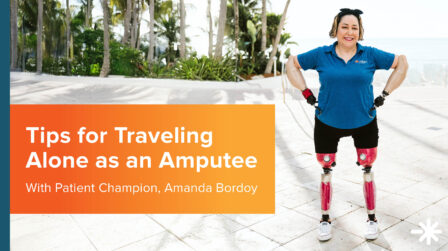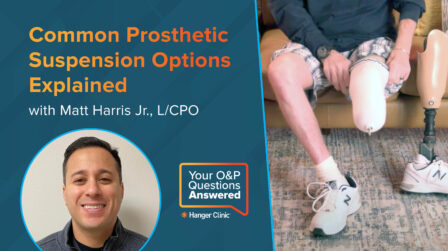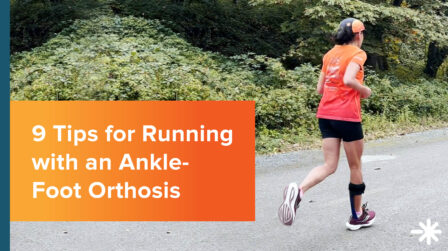US Army Veteran and Double Amputee Gives Back by Training Service Dogs
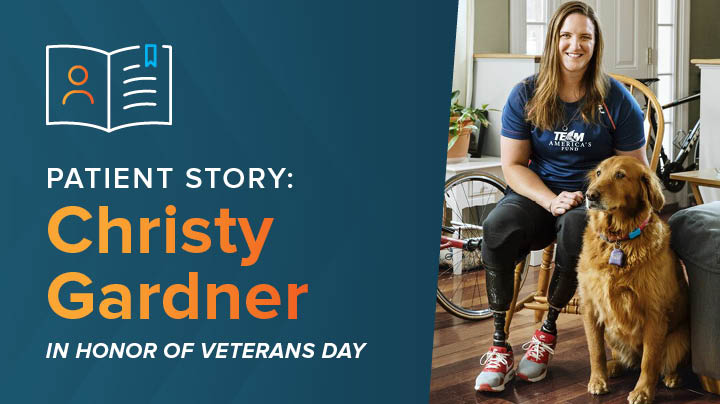
Christy is a retired United States Army veteran from Maine. In 2006, she was seriously injured while out on dismount patrol and was told she would be confined to a wheelchair. Then in 2016, Christy became a bilateral below-knee amputee. Today, Christy is thriving playing sports and helping other veterans and amputees as a therapy dog trainer.
An Active Childhood
Christy was a very active child, involved in soccer and track and field. By the time she was in high school, she was playing two sports each season – soccer and field hockey in the fall, indoor track and basketball in the winter, and outdoor track and soccer in the spring. She continued her sports career into college, competing for Long Island University on both their field hockey and track teams. After graduating college with a photography degree, Christy joined the U.S. Army.
Serving in the Army
Christy was proud to have the opportunity to serve her country.
“I worked my way up to Army sergeant. It was incredible working alongside others with the same passion. I planned to serve for the maximum number of years until that fateful day.”
In 2006 while serving overseas, Christy sustained multiple serious injuries, including fractures, spinal damage, and brain trauma. Her initial recovery was slow. For eight years, she underwent limb salvage for her legs. To prevent further damage to her leg and foot, doctors encouraged Christy to remain in a wheelchair. With her assistance dog, Moxie, by her side, Christy fought depression and knew she wanted to regain an active life again.
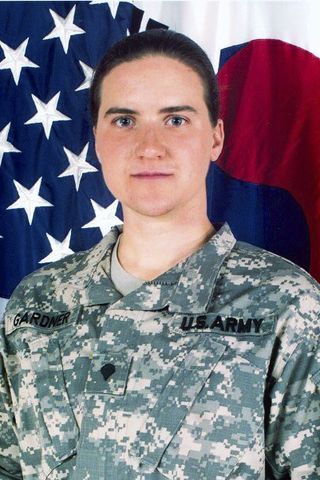
“I was not able to do a lot. At the time, Maine not very wheelchair accessible, my house was not accessible, and daily activities were a challenge. Through one of my rehabilitation groups, I started to play sled hockey to get my body moving again. That is where I met a group of people with amputation living great lives and doing amazing things.”
The Decision – Bilateral Below-Knee Amputation
Eventually, Christy and her medical team decided amputation would be the best option for her. In May 2015, Christy had her left leg amputated below the knee. Just nine months later, her right leg was also amputated below the knee.
“I was passionate about rehabilitating my body. With the first amputation, I slowly worked through the process of transferring, standing, and walking with my prosthesis. It took time to feel comfortable with it all. With my second amputation, I knew what was coming. The recovery went very quickly for me, which is not always the case after experiencing amputation. Nine weeks after my second amputation, I started walking with my prostheses, and six months later, I started running.
The team at Hanger Clinic in Auburn, Maine played a critical role in my recovery. My clinicians, Rick Browning and Kevin Zang, CO, BOCP, helped me understand the possibilities in life. I continue to show up to my appointments with Kevin and tell him the next activities I want to pursue in life, and he helps adjust my prosthetic equipment and provide me with encouragement to take the next steps.”
Pursuing Sports and Activities Again
Living with bilateral below-knee amputation did not stop Christy from pursuing sports. She found her passion in sled hockey and became a player for the U.S. Women’s Sled Hockey team. Christy participated in the U.S. Paralympic Trials for the 2016 Rio Paralympics and will soon be flying to Chile with the U.S. Paralympics Track and Field Team. She also skis, snowboards, plays basketball, and many other adaptive sports.
Christy also has played a role in starting new youth programs in adaptive sports, teaching adaptive sports to military veterans, and training service dogs.
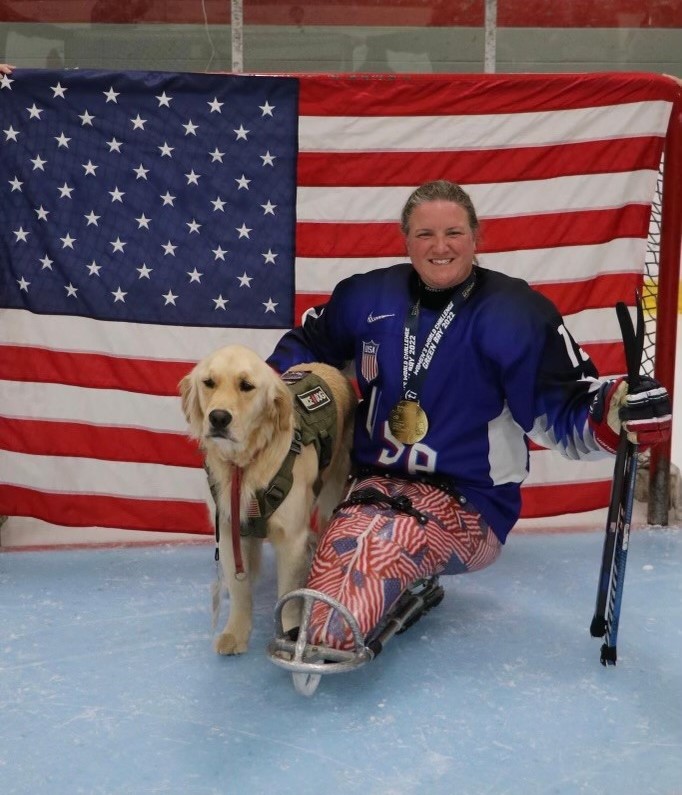
“I wanted to serve in the Army as my long-term career, but fate changed that. It was important to me to find a way to continue to serve. In 2020, I founded Mission Working Dogs to train service dogs for other amputees, veterans, and people living with disabilities.
My first dog, Moxie, was instrumental for me during my recovery process and crucial to my independence. Now I have Doug, who continues to assist me. I am passionate about helping others recover after traumatic experiences and amputation.”
Recognizing Veterans Day
In recognition of Veterans Day, Christy shares some insight that has been important for her.
“I tell other veterans experiencing an amputation to give themselves grace and time, but to keep pushing through. If the fit for your prosthesis doesn’t feel right, don’t be afraid to tell your clinician about it. The process to get the right fit can take time. Your body and activity levels continue to change, so adjustments may need to be made. One millimeter can make a difference in getting blisters or being able to walk over 10,000 steps in a day.
Additionally, get involved in your community. So many of us serve because we want to make a difference. There is still an opportunity to do that while living life with your prosthesis. You just need to look past the frustrations and look for the possibilities.”
Request a Free Evaluation
If you or someone you love are looking for personalized prosthetic care following amputation, get in touch with a board-certified prosthetist at a Hanger Clinic near you.
Latest Updates
Subscribe to stay up-to-date on our latest posts.

